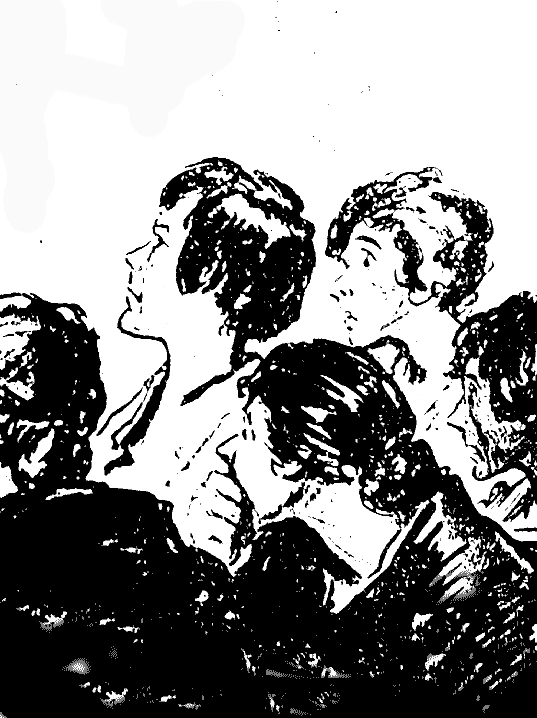By Bill Kovarik
They say that American Southerners are a lot like Japanese people – they drink a lot of tea, they eat a lot of rice, and they worship their ancestors.
Maybe that’s why the Confederate defenders today remind me of Hiroo Onoda, who died last year in Tokyo. Onoda was the Japanese Army officer who refused to surrender in 1945, at the end of World War II, and fought on in the remote jungles of the Philippines until 1974.
The way they finally got Hiroo Onoda to surrender was to send his former commanding officer to the Philippines with a formal order telling him to cease all military activities.
Would that work, here in the former Confederate States of America?
Well, OK, here goes:
As a descendant of a Confederate colonel who perished in the Civil War, also known as the Recent Unpleasantness and the War of Northern Aggression, I hereby order all descendants of Confederate veterans to cease all military and civic hostilities after the 150th anniversary of the surrender: April 12, 2015.
There. That should do it.
——————
On the first of July, 2013, my brother Daniel and I stood on the exact spot at Gettysburg where our grandfather’s grandfather was mortally wounded, exactly 150 years beforehand. It was a haunted moment.
Col. Daniel H. Christie, commander of the 23rd North Carolina infantry, was shot through the chest on the first day of battle of Gettysburg in 1863. The maneuver that got him killed was an incredible mistake, involving a parade-like advance of several regiments across an open field without scouts or skirmishers. Union troops were hidden in a ravine on the other side of the open field. The Confederate general who ordered this witless advance was relieved of command — and the bottle of whiskey he was said to be drinking.
They put Col. Christie’s shattered but still living body in an enormous wagon train with thousands of other groaning, dying soldiers lurching over the deeply rutted roads. They made it to a hospital in Winchester, Va., apparently given safe passage by Union cavalry — one of the acts of true gallantry remembered from the war. Somebody managed to get a message to his wife, Elizabeth Ann Christie, in Suffolk, Va. She rode hell for leather the 250 miles between Suffolk and Winchester, only to arrive the day after he died.
There was no glory in that. Nor was there anything particularly poetic or elevated about the way their daughter Lucy killed herself 30 years later, unable to bear the poverty and the struggle.
In fact, there was a distinct lack of glory for the entire Christie family. As late as 1910, my grandfather and my uncles would be told that the cupboard was empty. “If you kids want something to eat, you’re going to have to go catch it in the river.” Biscuits were scarce. Butter was a great luxury. A. Great. Luxury. In 1910.
So there’s the real lesson of the damned old Civil War. People suffered, and kept suffering, and kept on suffering, long after it was over. Families suffered through the generations. Good families and bad, slave-owning and not, white families and black. The South was a disaster. When the Depression arrived in 1930, Southerners wondered what all the fuss was about. They had been depressed for generations.
——
When the Civil War was only 100 years old, back in 1961, my brothers and I were members of a loose confederation of dudes you could have been spotted anywhere in the South — jeans and white t-shirts, thick black glasses slipping down sweaty sidewall buzz cuts.
We lived in Lee Hall, Virginia, between Williamsburg and Newport News, and the general store beaconed like an oasis to boys who had been walking miles down the railroad tracks, southern sun blazing overhead and creosote tar bubbling underfoot, sticking to our Keds sneakers.
Arriving at the store we’d solemnly mumble “gud afta-noon, suh,” to the old men rocking on the front porch. Then we’d make a rush for the cold case with the soda pop. Reaching low, letting our fingers linger to feel the cold of the case, we’d pull up a frosty five cent bottle of cola, guzzling the first half of the bottle, and then joyfully emitting what seemed like earth-shaking belches, and laughing because it wasn’t all that funny.
The old men would be watching us, and as we contemplated the comic book racks and the candy counter, they’d start the talk in that thick “Vahginyah” drawl.
“One hund’uth anibersuhry ob Manassas comin up,” one of them would say, fanning himself with a newspaper in his rocking his chair.
“Ah ‘membah it weyhl,” another might say. “We shore gabe th’ yankahs heyall.”
With one eye on us, they would conjure up long lines of grey uniforms with bayonets bursting through clouds of smoke, and old Jackson standing there like a stone wall, defying the “yankah invadahs.” The talk was vivid, personal, and frequently punctuated by “Ah ‘membah” and “ya’ll recall.” They’d talk about ghastly wounds and cannonballs carrying off human heads with eyes still open, screeching overhead. It wouldn’t take long for us to put down our comic books and come to sit underfoot, sucking on licorice and listening to heroic tales of Southern Glory.
For a while that summer, we actually thought the old men fought in the battles they described. That wasn’t such a stretch for kids aged 7 to 11 because the Civil War was no remote event in 1960s rural Virginia. We were surrounded by it. Confederate flags hung everywhere. Roadside signs with the “Stahs and Bahs” urged the impeachment of a Supreme Court justice who was too “libbah-al” on civil rights. The airwaves were full of rebellion and massive resistance. New monuments to the lost cause sprang up like dandelions.
Somewhere, in my memory, that general store became a high altar of our adolescent faith in the Lost Cause of the Noble South.
It’s a faith that libbah-al scholars have described as the “socio-religious idolatry of segregation.” But for us, it ran far deeper, being one of those things you believed whether it was true or not. We revered Robert E. Lee and Stonewall Jackson with a fervor only matched by, and often enflamed by, fundamentalist religion.
This Southern faith sustained four generations of my family through the catastrophic cyclone of suffering we endured after the Civil War. I was the fifth generation, along with my friends in their tar-stained sneakers, and by the time we got to college we would cringe at the memory of our Southern heritage.
We didn’t learn that in school. If anything, high school and college history classes only reinforced the images of guns and glory. Instead, we drifted away from the Southern faith on the school busses, listening to the radio, in conversations with my dad and grandparents, as the South wrestled with its conscience, late into the nights, those long summers of the 1960s.
I felt the first pang that summer of 1961, that kernel of doubt – about the war, about the old men, about all the wars, as we began to realize, doing the math on our fingers, walking home along the tracks, that the old men could not really have been survivors of the Civil War.
And yet, why would they talk that way? They must have been survivors of some war. Could they really have been talking about their experiences in World War I? Maybe they didn’t think their war was glorious enough, and they were looking for another, better, war, to tell us about. Or maybe we were just a bunch of gullible kids.
———————–
Many historians are animated by the ancient fantasy: To find a good, honest, clean, decent war, to find sacrifices we can admire, to view the slaughter as noble and meaningful.
As an historian, I understand the impulse to draw close to a great moment and find meaning. But I also find it heartbreaking, like watching a child who is still wrapping up inside a cherished illusion about a now-dead parent.
We Southerners have endured (and endured, and endured …) the 150th anniversary of the Civil War, contemplating with horror the buffoons in butternut uniforms strutting again across their imaginary Fields of Glory, their cause as empty now as their muskets.
I kept hoping it would pass in the dark, like a firefly after a lightning storm. But these things keep going. Like the guys who fly the old Confederate battle flags over the capitol grounds in South Carolina, or on the streets of Lexington, or in the Christmas Parade at Roanoke.
We need to hammer those bubbles of Southern illusion. Far from celebrating Confederate history month or applauding as they stage those pitiful re-enactments, we should mourn the dead and pray for the living.
Let’s remember the grotesque and gory side of the war, the screams that lingered long into the night as the gut-shot men lay bleeding, hopeless, in barns and churches that doubled as hospitals and morgues. Let’s recall the chaotic lack of ambulances on the field, the absence of anesthetics, and even the shortages of shovels to bury the dead.
And let’s remember what they fought for. No apology will ever mask the nauseating stench of slavery or the guilt that the South continues to bear for refusing to compromise on vital moral imperatives.
And yet, so many people still cling to the Gone-With-The-Wind illusion, that the noble days of the South can be found before the war, when happy slaves sang zippidy-do-dah for the plantation owners as they sipped their sweet mint juleps and read Ivanhoe and Byron between piano recitals at the plantation halls.
As that great Southern editor Reese Cleghorn once said of the aftermath of the war: “If there is a South in the future, and if there is a civilization, it may be because we got soft enough and subtle enough and loving and cunning enough to make do during the cyclone.”
My great-grandmother, the daughter of that Confederate colonel killed at Gettysburg, found life unbearable in the reconstructed South. How often did she have to tell the kids there was nothing to eat? She jumped down a well, and killed herself, rather than see in the 20th century.
Does anyone in the 21st century have the nerve to remind Southerners of the cost of that war, of the depth of the tragedy, the senselessness of the slaughter? To remind them that their search for meaning is over, and they have come up empty handed? That the swindlers of history have lied, for 150 years, in their feeble attempt to bring childish meaning to the ghastly carnage?
So, please, let’s end Confederate History Month in Virginia, put all those statues in the museums where they belong, and stop publishing all those Civil War glory books.
The most important service we could render to our veterans is simply this: When we talk about war, let’s try to talk about how we might prevent it in the future.
This is not just some yankee talkin’ at y’all here. I’m from Virginia, and I know what the war cost. And I know how my family suffered, how all of my relatives — who now include black, white, and Cherokee too – how they all suffered.
That’s all what that war was about.
So we’re calling in the troops.
It’s over, boys.
Furl that flag.


 Revolutions in Communication
Revolutions in Communication Mass Media & Environmental Conflict
Mass Media & Environmental Conflict